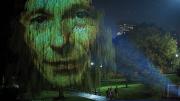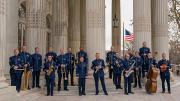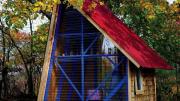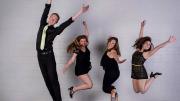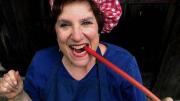Screenings from The 90-Second Newbery Film Festival. A match-up of poets and painters on Cape Cod. Dancing along Malden’s bike trail. And an afternoon of Spanish cuisine and Flamenco performers in Cambridge. This spring’s ArtWeek (April 25-May 5) offers “creative experiences that do not happen at any other time of the year,” says Susan Dahling Sullivan, chief strategic officer of the nonprofit Boch Center, producer of the 12-day annual event. “From hands-on art-making and demonstrations to panel discussions and performances—the week has something that allows people to get closer to the creative process themselves.”
ArtWeek began in 2013 (thanks to seed money from ArtPlace America), with 25 events in Boston. It has since grown to encompass more than 100 partner organizations and 525 events in 130 communities across the state. Says Sullivan, “The original idea was inspired by the popularity of restaurant weeks, but not necessarily with the same business model of offering meals (or art) at discounted prices.”
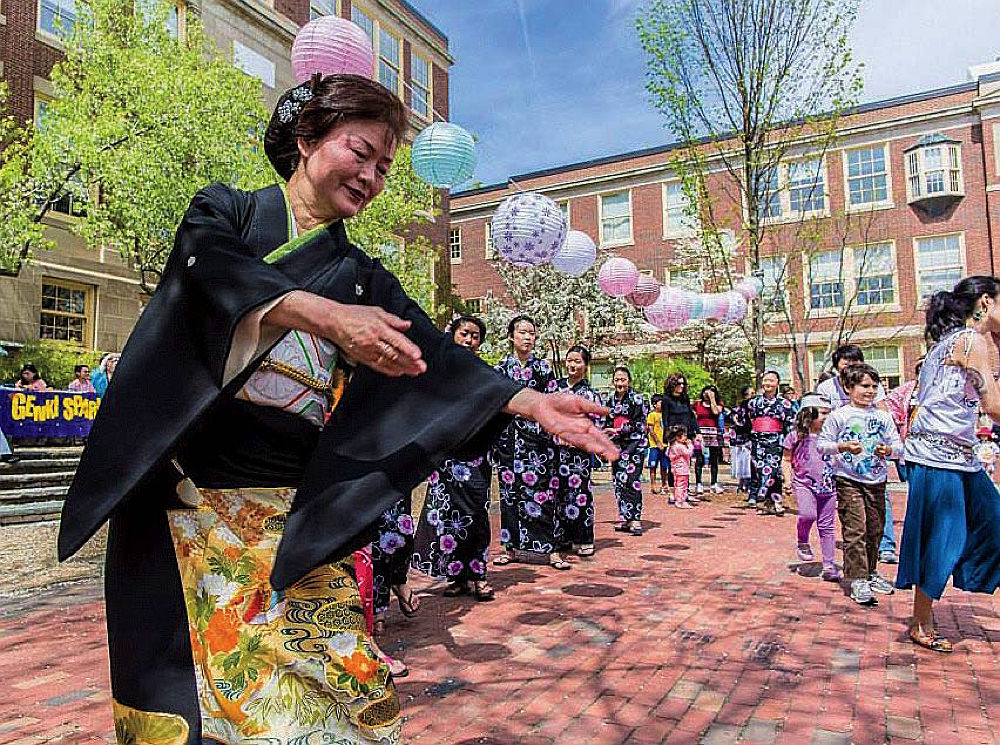
Photograph courtesy of ArtWeek
It was also a response to research conducted by the National Endowment for the Arts and LaPlaca Cohen (a firm that tracks trends and behaviors among cultural consumers) that reveals a shifting paradigm “in terms of how people are engaging with the arts,” she explains. “Participation used to be more of a passive activity: sit in a chair and listen to a concert and go see an art-exhibit opening. You wouldn’t hear the artists talk about their processes, or, going to a play, you wouldn’t hear the cast and director talk about the show afterward.” Studies show that people are highly motivated to attend arts events by “having fun, and learning and experiencing new things,” she continues: the very definitions of culture are widening to beyond the traditional genres of ballet, opera, and painting, and now extend to “community festivals, public art, and even food and drinks.”
ArtWeek organizers welcome both traditional and unconventional art-making—from gatherings with a social-justice and community-building theme, like an all-ages, all-abilities jogging event along “mural mile” in Framingham, she says, to off-beat experiences of the kind provided by an artist who fashioned instruments out of ice at the Faneuil Hall Frost Ice Loft (since closed) and then held a concert. Access and affordability are high priorities, too: more than 60 percent of ArtWeek events are free, and 90 percent are either free or cost under $25.
This year’s complete schedule will be posted online by April 1. But here’s a short preview:
Malden Dance Mile (April 27) is a free, collaborative “dance adventure” led by Monkeyhouse and OnStage Dance Company along U.S. Bicycle Route 1. Performances, choreographed community dancing, music, and games are open to anyone, of any ability.
Those more interested in exploring meditative movement might try the Tai Chi and Qi Gong Interactive Demonstration (May 4), at the Asian Crane Tai Chi studio in Plymouth. The ancient Chinese disciplines, with roots in the martial arts, offer wellness benefits—and the graceful, supremely focused motions are beautiful to watch.
In South Yarmouth, the Cultural Center of Cape Cod hosts Mutual Muses XI: A Marriage of Art and Poetry (April 17-May 5). The exhibit offers synergistic works generated by pairing 50 visual artists with 50 poets; each poet provides a poem, based on which the artist creates a piece of visual art, and vice versa. The resulting 100 “inspirations” and “responses” will be displayed, and wall space and art supplies are provided as well, for visitors’ own imaginative reactions. The aim, says Sullivan, is to “help people experience what it’s like to be part of that collaboration, or to work across media.”
The annual, nationwide 90-Second Newbery Film Festival is a video-making project for which children and teenagers create “offbeat, condensed versions of Newbery Award-winning books.” The best entries, along with other locally created videos, will be screened at the Boston Public Library on April 27, with guest filmmakers and co-hosts/prize-winning authors James Kennedy (The Order of Odd Fish) and M.T. Anderson (Feed, Octavian Nothing Saga).
Harvard’s own ArtsFirst Festival (May 2-5) happens to coincide with ArtWeek this year, and itself offers scores of student performances. Check the ArtWeek events schedule for additional special activities on campus, and especially at Harvard’s museums.
Yet ArtWeek is not solely focused on literary, performing, and fine arts, Sullivan asserts. “There are lots of definitions of creativity. Forbes consistently reports that creativity is among the most desirable talents that employers are looking for,” she adds: it’s not hard to see how “creativity is [implicit in] and impacts our daily personal and professional lives.” It plays a role, for example, in parenting, friendships, marriages, and in any other relationships requiring dynamic negotiation and problem-solving. It’s even an aspect of home-based projects like designing and planting a garden, decorating a bedroom, and cooking meals.
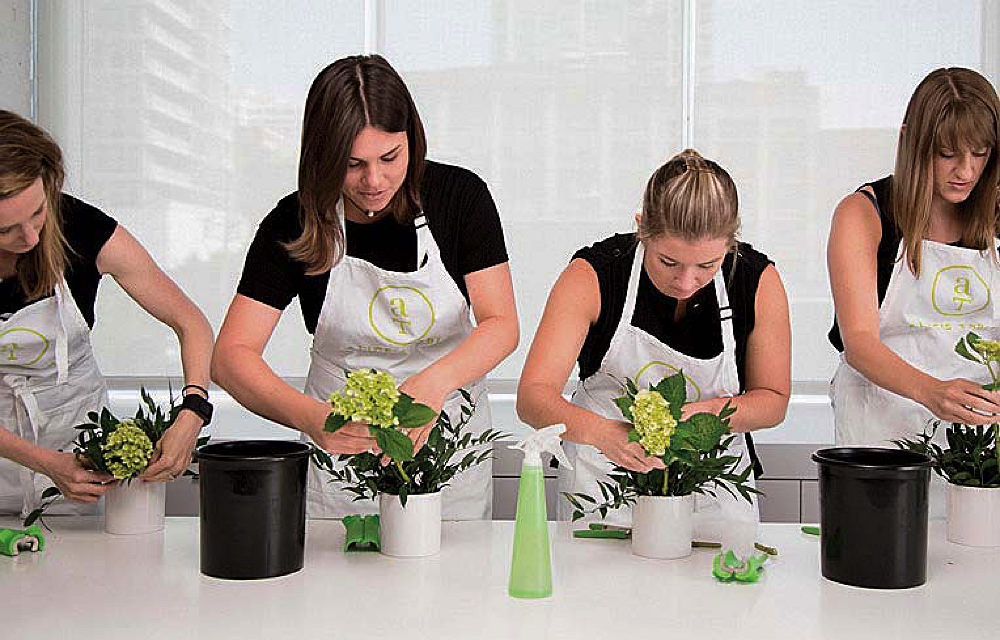
Photograph courtesy of ArtWeek
Honoring the culinary arts, Una Tarde En España (April 27, at Cambridge Center for Adult Education) features sangria and Spanish fare, discussions with the chef, and Flamenco music and dances performed by members of the Boston Arts Consort.
Creativity is also crucial, Sullivan says, to scientific and technical endeavors, and to any form of economy-enhancing innovations. From dreaming up experimental modalities and writing computer code, to engineering and architectural feats and the commercial application of research—all require vision, inspiration, and originality: just what she thinks creativity means. “To think outside of the rules,” she summarizes. “An opportunity to make connections that are not obvious, to define and redefine, and, at the other end of the spectrum, to experience joy and wonder and express ourselves in different ways. Creativity captures the past and allows you to envision a future.”
ArtWeek delves into physics, for example, in See the World Differently through Kaleidoscope Sculptures (April 27), sited next to Boston’s Christopher Columbus Waterfront Park. The ’scope art is hosted by Beautiful Forms to See and explores technical facets of mirrored systems and light refraction, while offering nearly infinite, ever-changing, mind-bending images. The project is entrancing—while enhancing knowledge of science, technology, engineering, art, and math (known as STEAM).
A half-mile walk away, in the North End, Changing Course (April 27-28) highlights oceanic life and the impact of human-created pollution. Presented by Save the Harbor/Save the Bay, the sculptures comprise 2,000 plastic drinking bottles collected from regional beaches and waterways that, when strung together, depict “a powerful school of fish swimming upstream against the tide of plastics.” Creators aim to inspire people to stop using plastic products or, at least, constructively recycle them.
ArtWeek also taps into fresh perspectives on cultural history. The Massachusetts Historical Society, in Boston, has organized the exhibit “ ‘Can She Do it?’ Massachusetts Debates a Woman’s Right to Vote,” (April 26-September 21) and during ArtWeek, on April 29, hosts a reception with guest curator Allison Lange, assistant history professor at Wentworth Institute of Technology, who explains how imagery was used to define gender and power during the suffrage movement.
Each year, ArtWeek draws more participating towns, organizations, and individuals, Sullivan says: “Everyone is seeing the value of this designated time as a way to help people access creativity across the Commonwealth. Creativity is one of the most important elements of a full life.”
